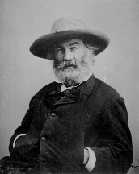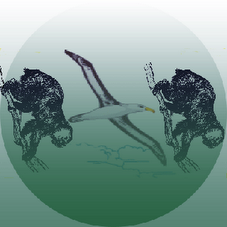SCIENCE NEWS
By Science Correspondent Jan Carew
 Renowned Noongallas scientist, Professor Duke Ellington Trewavas, has been awarded the Nobel Prize for Philosophical Physics for his pioneering work on the daftness of brushes. Professor Trewavas, who holds the Chair of Experimental Physics and Natural Philosophy at University College, Relubbus, is credited with finally resolving the age-old question of whether two brushes are dafter than one brush.
Renowned Noongallas scientist, Professor Duke Ellington Trewavas, has been awarded the Nobel Prize for Philosophical Physics for his pioneering work on the daftness of brushes. Professor Trewavas, who holds the Chair of Experimental Physics and Natural Philosophy at University College, Relubbus, is credited with finally resolving the age-old question of whether two brushes are dafter than one brush.
The classic view was expounded by Aristotle in 348 B.C., when he argued that, since a single brush was infinitely daft, the combined daftness of two or more brushes could not exceed that of one alone.
This view remained unchallenged for over two millenia until, in the eighteenth century, David Hume proposed the idea of a rocket ship accelerating for ever through space. Over trillions of years (the concept of "light years" was then unknown), as the ship progresses deeper and deeper into space, gradually picking up speed all the while, it approaches nearer and nearer to the edge of the universe. However, as the universe is infinite, the ship can never reach its edge; instead, the distance between the ship and the edge becomes smaller and smaller, until it is infinitesimally small -- and then it becomes smaller still!
Just as one cannot, for any practical purpose, encompass the infinity of the universe, argues Hume, so one cannot encompass an infinity of daftness. It follows that, for any practical purpose, a brush cannot be infinitely daft. If a brush is not infinitely daft, two brushes must be dafter than one brush.
The opposed viewpoints of Aristotle and Hume have divided philosophers for the past two-and-a-half centuries. Now, at last, in his seminal paper On the Daftness of Brushes, Professor Trewavas seems to have resolved the question. Moreover, he has done so by a master stroke of original thinking that turns the question on its head!
We now know, says Trewavas, that the universe is not infinite: it had a beginning (about 14 billion years ago) and may have an end. We know that it is currently expanding. If it is expanding, it was smaller last week than it is this week, and so, at any particular time, cannot be infinite.
If the universe is not infinite, argues Trewavas, nothing in it can possess the "quality of infinity". A brush, for example, cannot be infinitely daft. If it cannot be infinitely daft, it follows that a brush must possess some degree, however small, of intelligence.
This was the breakthrough moment! Having realized that brushes possess intelligence, it was a small step for Trewavas to set up an experiment to measure that intelligence. The real problem, however, was in obtaining the funding to acquire equipment sensitive enough to respond to the microscopically small manifestations of intelligence exhibited by most brushes. The equipment used to detect positrons by the CERN (Conseil Européen pour la Recherche Nucléaire) particle accelerator, for example, proved to be laughably inadequate. However, Trewavas was not to be denied. He recruited his Enty Gladys to organize weekly coffee mornings until the necessary funds were raised.
It turns out that some brushes are smarter than others. Typically, your average clothes brush is smarter than your average shoe brush. By carefully selecting the types of brush to experiment on, and by fine-tuning his equipment over a period of five years, Trewavas was finally able to arrive at an approximation of the Intelligence Quotient (IQ) of a typical clothes brush -- 0.01 to the minus 327777729 recurring. Having established by experiment that every brush possesses a degree of intelligence, however small, it was a trivial step for Trewavas to produce a mathematical proof that the combined intelligences of any two brushes must necessarily be greater than the single intelligence of either one.
As intimated above, Trewavas's pioneering work has turned the age-old question on its head. It is not whether two brushes are twice as daft as one brush, but whether they are twice as intelligent. It turns out that they are!
NOONGALLAS SCIENTIST WINS NOBEL PRIZE
Posted by
Editor: Sylvanus Penhaul
0
comments. CLICK HERE TO ADD A COMMENT
![]()
Labels: Science news
Subscribe to:
Comments (Atom)




